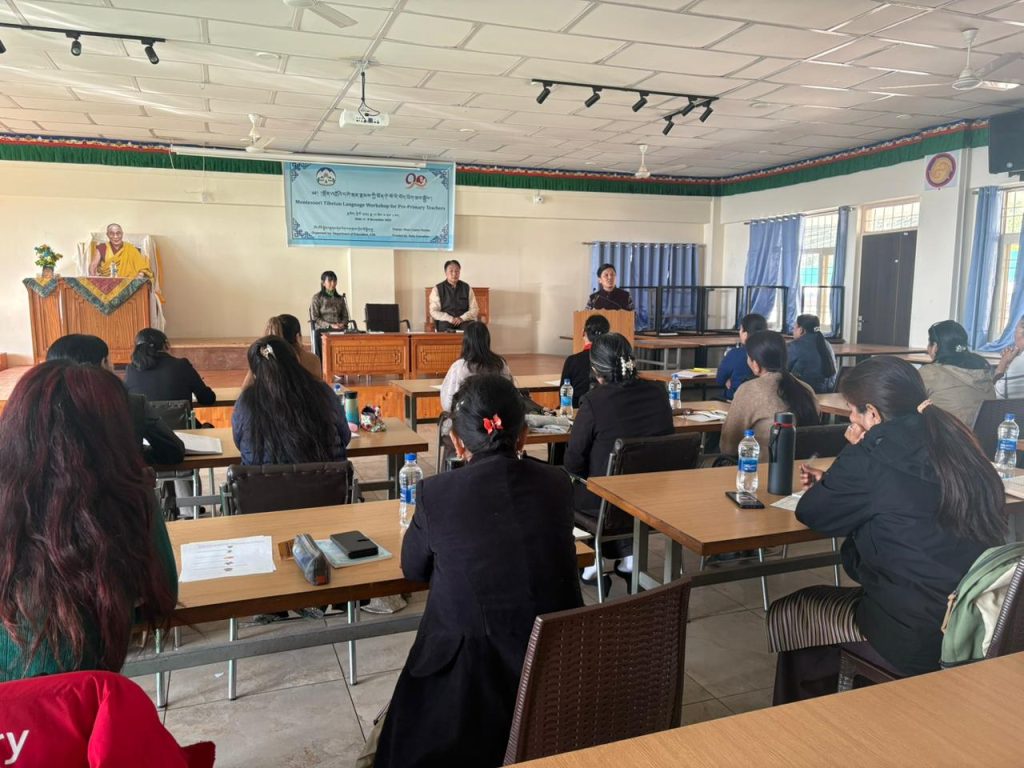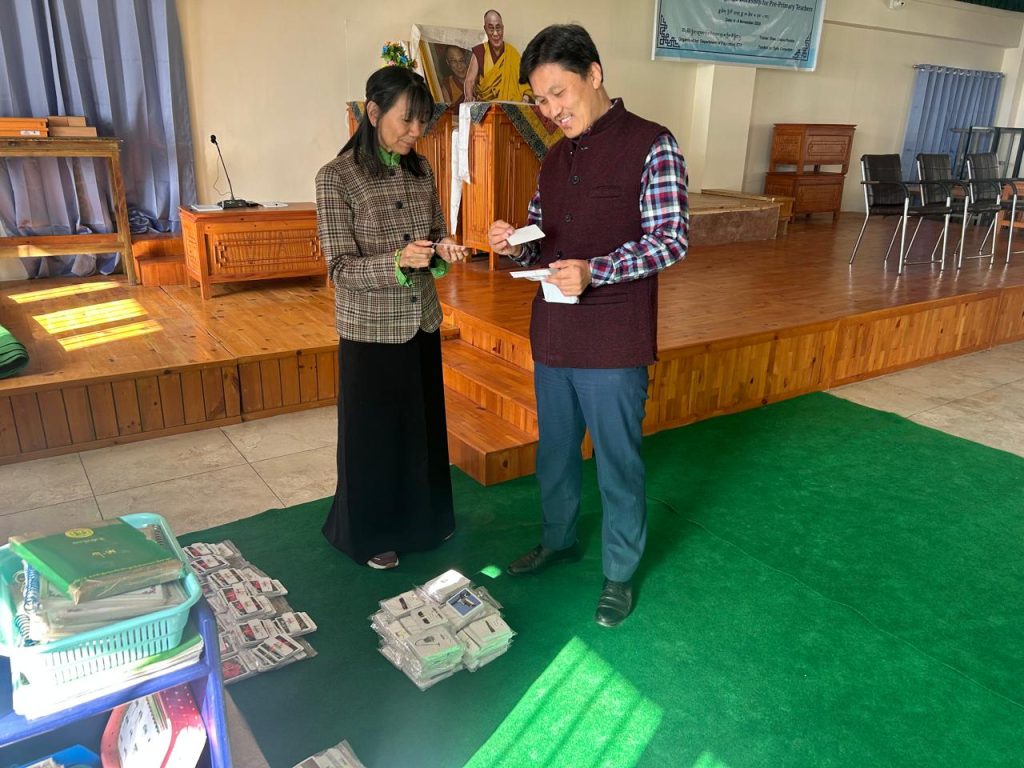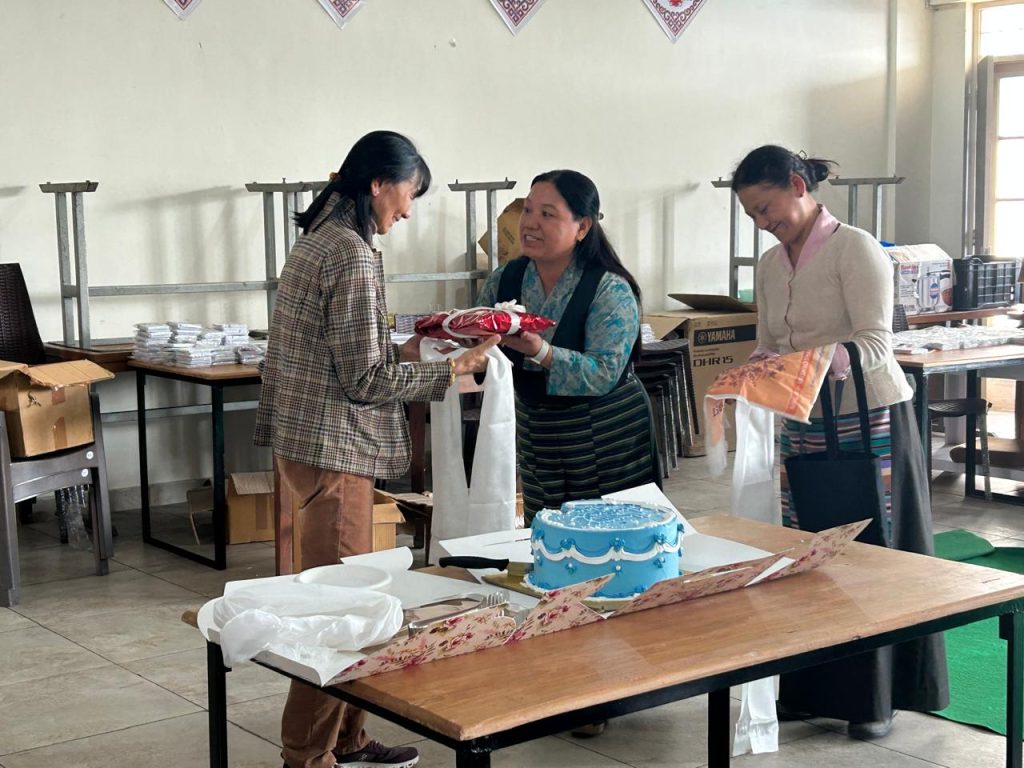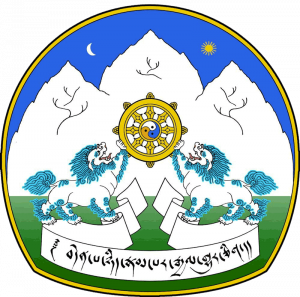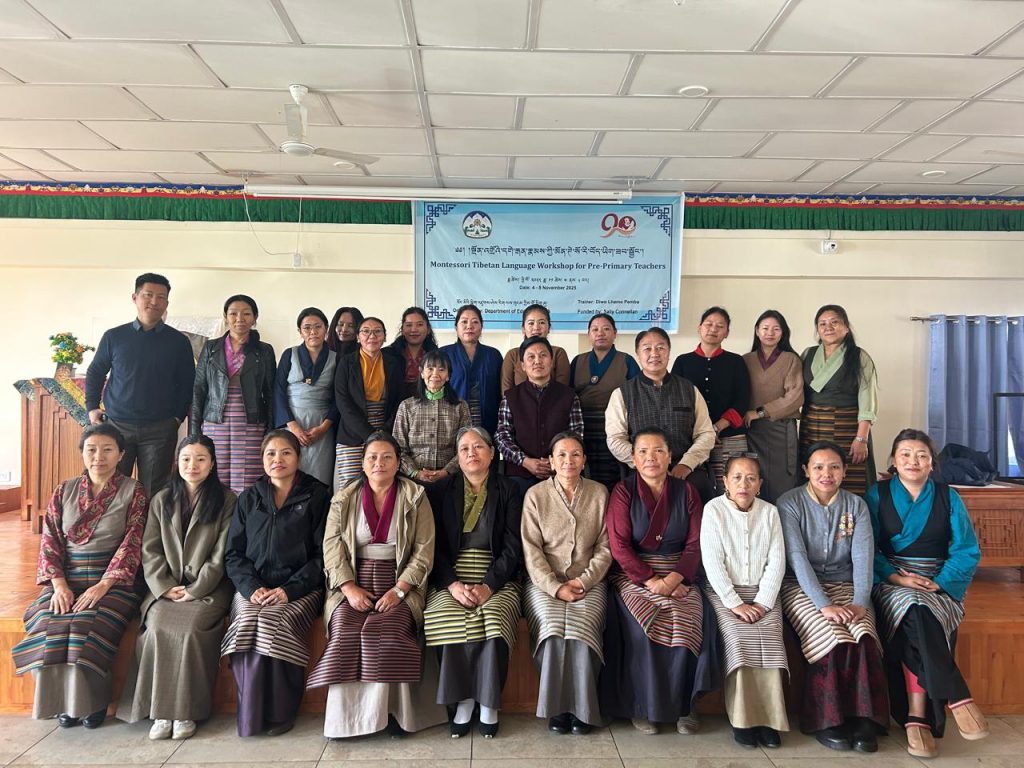
Dharamshala: The Department of Education (DoE), Central Tibetan Administration, commenced a Montessori-based Tibetan Language Workshop for Pre-Primary Teachers on 4–8 November 2025 at Gangchen Kyishong, Dharamshala. A total of 20 pre-primary teachers are participating in the program, including 14 from STSS schools and 3 each from TCV and THF schools.
On the morning 9 am on 4 November, the inaugural session on was graced by Education Secretary Jigmey Namgyal as the Chief Guest. Others in attendance included workshop trainer Diwo Lhamo Pemba, Head of Academic Section Tenzin Dorjee, DoE staff, and the participants.
To open the program, Tenzin Dorjee welcomed the resource person and participants and shared the background of the collaboration. He recalled how the DoE first connected with Lhamo Pemba in 2017, following which she has facilitated seven in-person workshops and two online trainings for Tibetan pre-primary teachers.
He highlighted that, through this collaboration, 120 Tibetan pre-primary teachers have completed AMI Primary Orientation Courses, including 58 teachers in June–July 2025. Additionally, 93 teachers received training in Exercises for Practical Life (EPL), 32 in Mathematics, and 31 in Sensorial activities. He expressed gratitude to Pemba for her continued support in strengthening pre-primary education in the Tibetan community, and extended thanks to Sally Connellan for her generous funding support for this and previous trainings.
Following the welcome address, Lhamo Pemba, the workshop trainer, provided a brief overview of the training content and expressed appreciation to the DoE for organising and supporting the workshop..
In his opening address, Secretary Jigmey Namgyal spoke about the historical context of Tibetan education in exile. He noted that Tibetan schools initially followed India’s education policy shaped by Lord Macaulay’s Minute on Education, which led to the 10+2 structure and strong emphasis on board examination results. He then explained how the Basic Education Policy for Tibetans in Exile was later developed in alignment with the unique educational needs of Tibetans in exile.
He underscored the critical importance of foundational learning, citing both India’s NEP structure (5+3+3+4) and the Tibetan BEP structure (3+5+3+4), both of which prioritise early education. He reminded participants that 80–90% of brain development occurs between ages 0–7, highlighting the importance of pre-primary education and the pivotal role of pre-primary teachers.
The Secretary also shared key DoE initiatives to strengthen Pre-primary Education, including teacher training programs for pre-primary teachers and distribution of teaching aids in Tibetan language, Mathematics, Sensorial learning, and EPL to pre-primary schools. He further mentioned that DoE’s ECCE program has supported crèches in Tibetan settlements with training for caregivers, provision of indoor and outdoor play equipment, and nutritional support for children.
He emphasised nurturing children to develop a scientific temperament, creativity, analytical ability, curiosity, and confidence to express themselves freely, noting that “marks are not the most important outcome — thinking, speaking, and doing independently are.” He also shared that the DoE has initiated a Foundational Numeracy Program, with baseline assessments recently completed, and that future interventions will follow based on data findings.
Highlighting inclusivity, he stressed that teachers should provide special attention to children with Specific Learning Disorders and that pre-primary and primary teachers play a vital role in society. He encouraged the promotion of patriotism, ethical values, and cultural identity through songs and dance. He concluded his address by urging participants to work diligently and apply their learning in their respective schools.
The program concluded with a vote of thanks by Tenzin Yeshi, followed by a group photograph with the Chief Guest and trainer.
